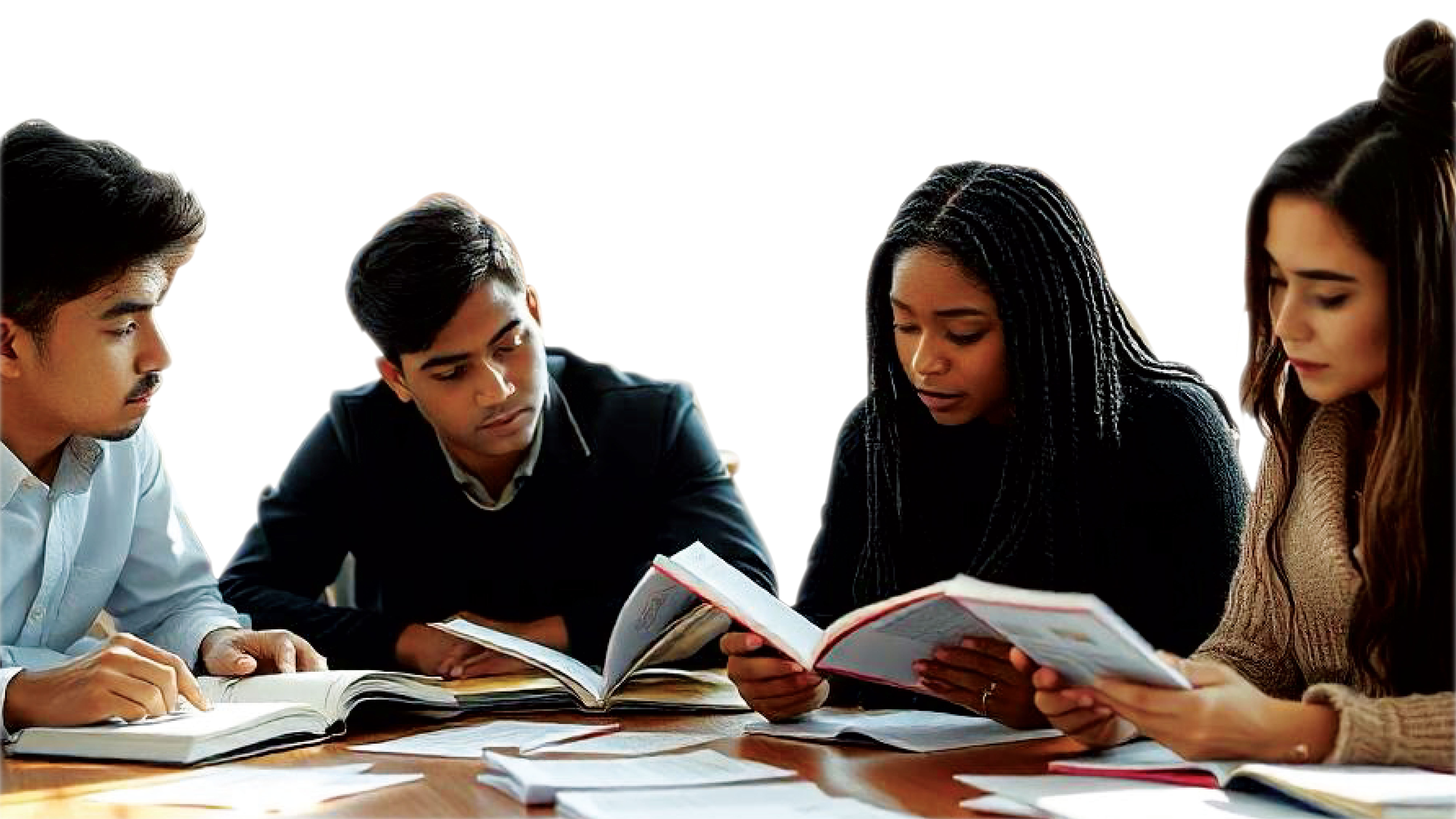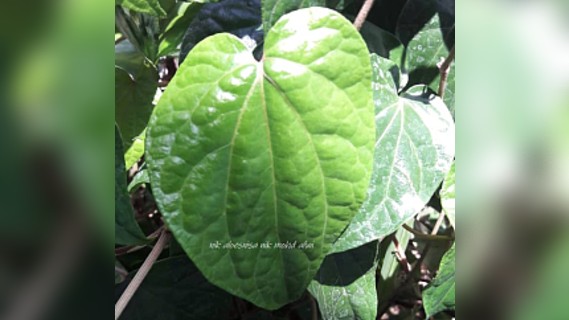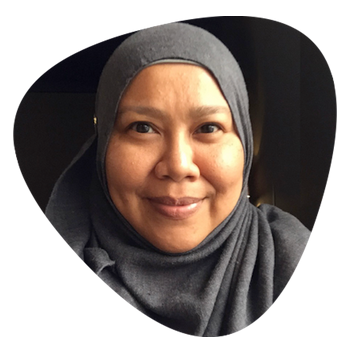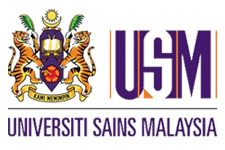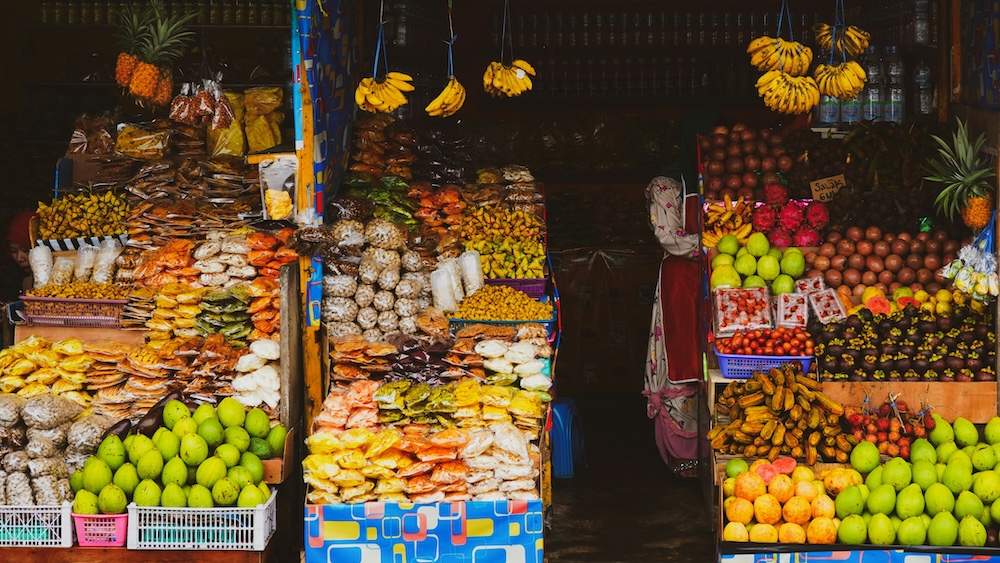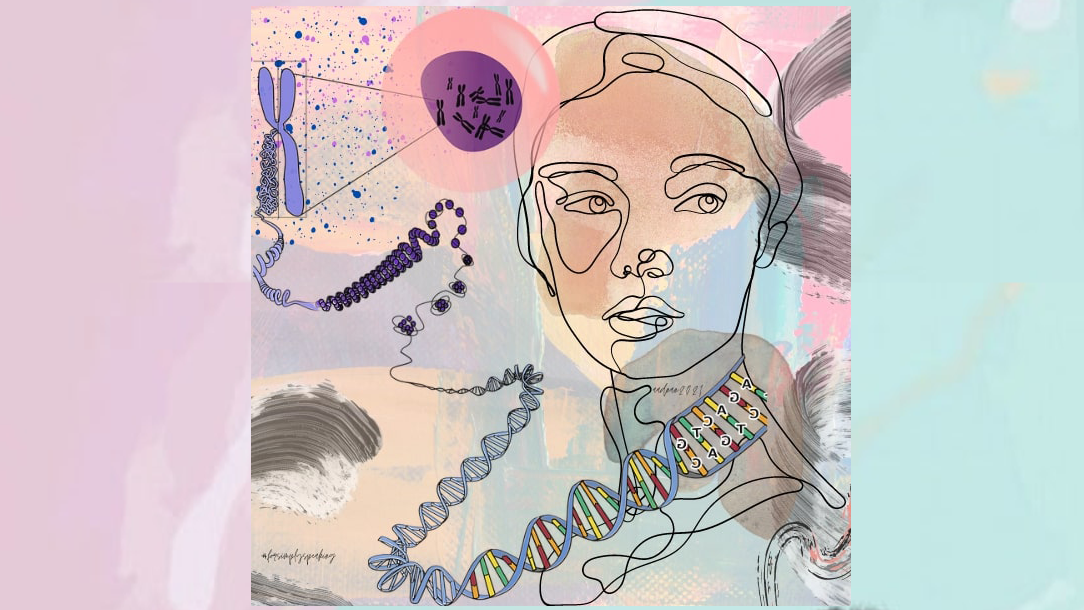"USM has always believed that the True North of the university is to be able to create knowledge; do not stop with that but move that knowledge to be able to help humanity."
In this interview, Dr. Aisyah Saad learns from Prof. Datuk Dr. Asma Ismail, the 7th Vice-Chancellor of Universiti Sains Malaysia (USM) about USM’s global village initiative, holistic education and breaking silos in research. Find out about her visions of USM in the fourth industrial revolution (4IR)–how she is taking USM into an era of excellence with a soul; to help the poor, underserved and marginalised.
This interview was held a day before Universiti Sains Malaysia (USM) celebrated its Golden Jubilee on 1 June 2019. USM was established in 1969, the country's second university, at the beginning of the third industrial revolution (3IR). During the 3IR, one witnesses the rise in electronics, computers, automation and biotechnology.
50 years on…
Today we are going into the era 4IR where one would witness the merging of digital, physical and biological worlds, where automation, artificial intelligence and Internet of Things (IoT) would dominate over human in routine jobs. Whether we like it or not, the 4IR is changing how we live–think about how a piece of technology (a mobile phone?) that one can't live without for perhaps 5 minutes. This piece of tech has also changed the way we work, socialise and communicate with family, friends, colleagues, and our communities. How news travels. How things are shared. How we learn and unlearn. How we co-learn, rather than teach in the traditional manners of yesteryears.
A digital era that may change our values or change what we value.
In this era, Prof. Datuk Dr. Asma Ismail is the first woman entrusted to steer the country’s APEX university to greater heights. Leading the entire battalion into a territory relatively unexplored by any university before. Yet, spearheading changes are no stranger to Prof. Datuk Dr. Asma.
A woman of many firsts.
Prof. Datuk Dr. Asma Ismail is the first female Vice-Chancellor (VC) of Universiti Sains Malaysia (USM) and Universiti Sains Islam Malaysia (USIM) in 2012. She became the first woman to be appointed twice as the VC of public universities. Prof. Datuk Dr. Asma is Malaysia's first female Director-General of Higher Education; at present, the first female President of Academy of Sciences Malaysia (2016-2019). As a researcher, her scientific discoveries have led to 14 patents and commercialisation of TYPHIDOT, test kits for the rapid detection of S. typhi, a causative agent for typhoid fever. It is a serious disease and spread by contaminated food and water and its endemic in many developing countries.
From a layperson's perspective, Prof. Datuk Dr. Asma Ismail is a trailblazer–inspiring person who shows to other people that things are possible when you believe in yourself and be willing enough to continue to improve and better oneself every day. An exceptional role model for young scientists, researchers and educators, not only in research, development, commercialisation and enterprise (RDCE) but also in higher education.
During the interview, she revealed more about where her career path had taken her, "I don't plan, but I think God plans things for me. For example, I was in USM. At that time USM has APEX, we have values, but the values are not internalised as far as I'm concerned. Like lip service; yes, we have that (the values)."
"When I went to USIM, I learned the value of balance–of knowledge and character " she stressed, "very important the integration of ilmu naqli dan aqli, and very important, balance." For the readers, ilmu naqli is defined as 'revealed knowledge' and ilmu aqli, reasoned knowledge or reasoning. [1]
She continued further, "after USIM, then God brought me to higher education to make a change, to make a difference. I went into flexible education which was not done before, I went into 2u2i [2]. I went into integrated CGPA (iCGPA), which is finally now assessing a human being not just based in knowledge (CGPA) but based on a student's capabilities of akhlak and ilmu (character and knowledge)."
The importance of holistic and balanced education for graduates of tomorrow
“It just dawned upon me. I began to understand the profound and far-reaching impact in higher education institutions if iCGPA and CGPA are used in combination. A dynamite duo, if done well and systematically.
CGPA results report on how good a university graduate is academically but may give an incomplete picture of a student's abilities during his/her formative years in the university. I remember a recent call from a good friend of mine–a banker who had to select new hires for her team. She received over 150 applications from fresh graduates but needed to select about less than 10%. She asked me, "I'm having a big headache now–how to choose my new staff. Applicants from UUM, UITM, USM and etc. All with CGPA of 3.5 and above. Which graduates are good? Help me!"
My empathetic but to-the-point answer, "It's difficult to tell from CGPAs, afraid there's no shortcuts. I think the only way is to test them for the desired skills. It'd take time to design and administer the tests, but you'll get the best." A few months later, I heard from my friend that she was happy with her new team.
For academic purposes, CGPA may be a sufficient indicator of a promising candidate to pursue a Master's degree or Ph.D. But for jobs beyond the ivory towers, skills and competency are often more valued than CGPA.
"... finally, now assessing a human being not just based on knowledge (CGPA) but (iCGPA) based on a student's knowledge and capabilities, a balance of akhlak and ilmu (character and knowledge)."
Pairing CGPA with iCGPA would result in a 360-degree evaluation tool capturing who a student is, what he or she has done (and done well) in university years. Where one looks not only at selected trees, but see the entire 'landscape' of forests, rivers, hills and mountains–where accomplishments and journeys in academic and non-academic activities and performances are tracked and reported. Is it not possible to develop a good iCGPA system in the era of 4IR? A more complete picture would certainly be appreciated and welcomed in any life-changing decisions for job-seekers and employers.
Radical to many public universities, iCGPA was purported to cause major distraction and diversions for many academics from their main duties. Consequently, last year some universities abandoned iCGPA, while others re-branded it into their own. [3]
In a recent USM APEX 2020 Lab exercise, USM brands their graduates with 'HEBAT' which stands for ‘Holistic’, ‘Entrepreneurial’ in having the character of an entrepreneur, ‘Balanced’, ‘Articulate’ and ‘Thinker’ or being thoughtful. [4]
I continued to listen to Datuk VC's explanation, "That's a new wow thing, you know. To be balanced. And that is the real challenge. Now how do you now make all these big values internalised? How do you teach altruism? How do you teach volunteerism? How do you teach all these? How do we build character? So, this is where we see the concept of community engagement. The concept of experiential learning. That's the key word. Now we know that learning from the classroom alone is not enough. You need to also learn from society. These two need to be combined."
As USM VC, how do you see we integrate this in USM students?
Datuk VC answered, "That's what I say, how do we do this at the same time make sure it is very relevant for the future generation facing industry 4.0. Where the future is about students being a global citizen and the challenge of the unknown is the norm. Whether you like it or not, the world is changing and it is going to be borderless and they need to be able to fit all that together."
"... The concept of experiential learning. That's the key word. Now we know that classroom alone is not enough. You also need to learn from society. These two need to be combined."
Datuk VC is initiating a global village concept to learn to respect diversity, where international students will co-habit and co-learn side by side with Malaysian students. Where they would meet, cook, eat, travel and hopefully work together as part of their learning experience while at USM. Where they'd get to know each other better as global citizens. Where the seeds for a global network of future leaders, makers and entrepreneurs are sown–in USM. Datuk VC coined it "from the dorm to the lecture halls." A far-sighted initiative for USM, I reckon.
She continued, "No matter how big a company you lead, at the end of the day it's about: What are your values? Therefore, values are very important. Now, how do you learn these values? To me, this is where experiential learning is very important. What kind of values? Values of respect, values of understanding, values of being tolerant about people, values like intercultural competency. Values like 'adab'. These are very important."
"How do students learn these? So, this is where I say that experiential learning which is now part and parcel of our curriculum. These are the changes that I see when we did the Malaysia Education Blueprint (MEB). That I think is now very much in line and aligned to moving our future generation. To move to where the students will be able to cope with what's happening in the world. With experiential learning, we do community engagement. We look into unity in diversity and education as the unifying tool. This is very important for this country."
Research from Z to A
Would you like to talk about your research? Because I remember at a Pengajaran dan Pembelajaran (PnP) programme in April 2019 (Health Campus), the one that strikes me the most from your talk was the strategic research design. I think it is the opposite of what the way usually a person with a Ph.D. would approach a research project.
Datuk VC replied, "I've always been a practical person. And I would say that if my grandmother asked me what are you doing in the university? I should be able to tell my grandmother. And my grandmother must understand what I did. Because then, it means that I have done what it takes now–from high-tech to high-touch right. Because if my grandmother doesn't understand, she's a layman, it means that firstly I'm not able to communicate well regarding what I'm doing. Secondly, I'm not doing enough to finally reaching impact."
"It's not about outcome anymore," she shifted in her seat - shifted to face me, then she continued, "Yes, it's impact to the final - the final endgame - of what you do the research for..."
Datuk VC asked me a penetrating question, "What's the end game for you?" and I was thinking hard for an answer, which didn't come right there and then. Luckily, she continued, "That's why I worked from Z to A. You already plan what exactly you want to do at the end of the route... at the end of the rainbow? So, you have to have a game plan, and a lot of the time people just give you a project–with introduction, methodology, materials and methods, results and discussions working from A to Z. "This is where the thinking is not there!" We need to work with the end in mind and plan our research for success, by design".
Precisely, it reminds of what I discussed in my online course "Elevate Your Research Presentations!"–a storyline for presenting and discussing about one's research. Start by proposing a solution to a problem.
At that juncture, Datuk VC told a story when she returned home from her studies, "when I came back, my Head of Department, Prof. Ong Kok Hai said, Asma, how do I solve this typhoid problem? At the time typhoid was endemic in Kelantan. We face an epidemic every year. Usually there was a fight between Kedah, Kelantan, Sabah and Sarawak as which state would be No 1 for typhoid for the year”
"They asked, how do we solve? How do we provide the right solution to typhoid? He didn't ask me what kind of research I want to do. He asked me what kind of solution–this is my problem now in Kelantan, we have an epidemic of typhoid (a problem) every year, without fail. Based on the research that we did at INFORMM and working together with Public Health, typhoid was no longer problem in Kelantan. We could not do this alone. We have to collaborate with the Ministry and the people. Its important that we enhance, educate and empower those involved”.
According to Datuk VC, TYPHIDOT diagnostic kits have helped more than two million people around the world. It has helped in producing patents, papers, awards, created a lot of start-up companies and provided five hundred jobs around the world.
With such extensive experiences in research and innovations in the diagnostic field, she started the buzzword "RDC" (Research, Development & Commercialisation), then went on a step further with "RDCE"–the E for the word enterprise.
"... when you first create the new knowledge, you must create the whole value chain to see impact of the knowledge created."
For any aspiring researchers out there, Datuk VC reminded, "It's not enough to say I have commercialised because now you would learn that it is a long and bumpy ride. And there's a lot of misconceptions–one of them is "Oh you've commercialised, now this is a time for you to make money."
In her typical 'Hellooo' before injecting the reality (where it bites), she further reminded that, "It takes a long way before you can make money." Besides that, in any research-intensive university, one needs to remember the importance of creating and sustaining a research continuum. For Datuk VC, she needed to see "... that when you create the knowledge, you create the whole value chain."
Accordingly, she felt that, "It is not enough to do fundamental, you have to take the fundamental to the next level right. Because at the end of the day what have you done? If you have done that (applying the knowledge), it is called wisdom. Otherwise, it's just knowledge. It's just information."
"So, that's why I created INFORMM, the first translational Centre of Excellence in the country," Datuk VC added, "I have always said fundamental combined with technology platform to create products. These products can now move and change humanity. They can make a difference to provide a sustainable change in society."
I ventured to ask, "Considering the long and bumpy roads in RDCE, would you do it again if you are younger?" Her answer was a definite yes, she would do it again.
In 2050, what would be your vision for USM?
"I envision USM as a university with a difference," Datuk VC said and continued, "There are so many universities without soul–who press on excellence. I envision USM to show to the world - being an excellent university but with soul. A university that is balanced between KPI and KIP (key intangible performance)" . A university that is sustainability-led and values internalised. Let someone else be number 1 (in rank) but we want USM to be the preferred one by our students and other stakeholders.
Her vision for USM in 2050 carries a deep message–invigorating and curative–to current practices in many universities. It, somehow, reminds me of the book 'Excellence Without Soul' by Harry Lewis, a Harvard professor and a former Dean of Harvard College. An excerpt from the book paints a picture of the state of affairs in universities:
"The greater the university, the more intent it is on the competitive success on the marketplace of faculty, students and research money. And the less likely it is to talk seriously to students about their development into people of good character who will know that they owe something to the society for the privileged education they have received."
"I think we are on the right track we say hashtag #syukurselalu. People with soul understand gratitude. And if you understand gratitude, you know when you say thank you, a lot more will be bestowed (blessed) upon you."
"And I think that will go far with USM. And with USM, I've always said #USMstyle. That is my message to USM, my belief that USM will always do things #USMstyle. People have said that what is normal for USM is usually seen as innovative for others. USM is great because of our strong team spirit and the underlying APEX agenda, always guiding us to our true north; to make a difference to society with high tech and high touch”.
The recent one, the APEX agenda has helped with the inaugural Times Higher Education University Impact Ranking 2019?
"Yes, so that's why I said that USM has always believed that the True North of the university is to be able to create knowledge; do not stop with that but move that knowledge to be able to help and make a difference to humanity."
"And we say humanity, it can be the mankind, it can be everybody but we concentrate on helping the poor. That is an intellectual blue ocean if you only realize it, because nobody makes products for the people who cannot pay. They make products for the rich. In order to make products for the poor is to make it accessible, available, affordable and appropriate to the culture of the people needing it most. Datuk VC emphasised, "that means the technology must be different. That, in essence is the real challenge of R&D. To create products or technology platforms that has not been done before. This is essence is the blue ocean strategy of boldly going where no one has gone before. Thus, creating new technology or innovation that is novel and disruptive. Of being the first in the world. Hence enhancing USM’s motto “We lead” or #sulongselalu. “
"That's why I say you stop playing catching up and turn around the way we do research."
That reminds me of the following event where Datuk VC was addressing the young lecturers at USM Health Campus during The Quest for Excellence programme organised by CDAE@USM. During her speech, she offered a word of advice to the aspiring lecturers and researchers:
"Create an impact by adjusting your research focus to what is relevant to the country, not what you did during your Ph.D.”
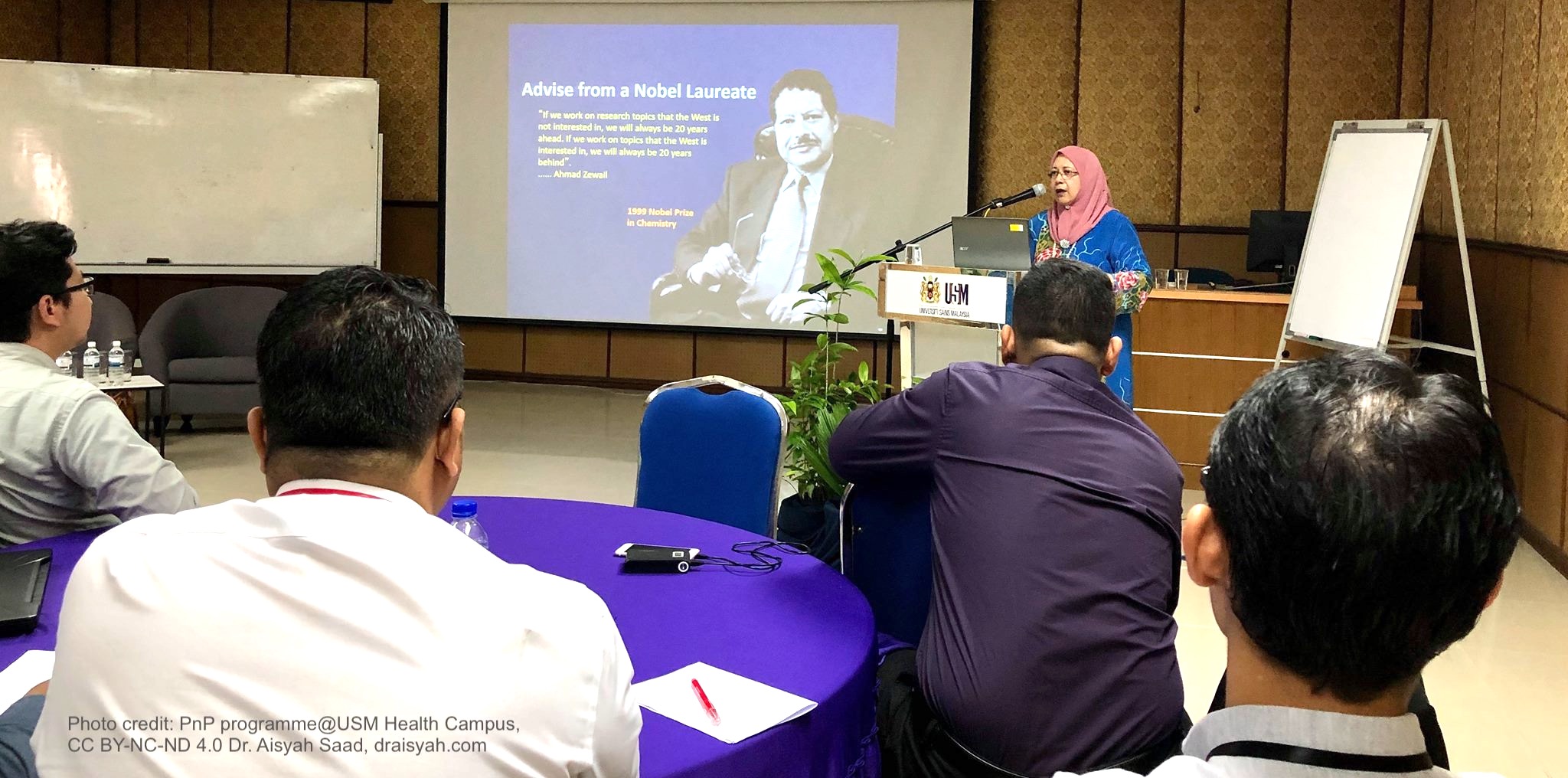
Last but not my least, the concluding question - how would you like to be remembered?
Datuk VC paused to reflect, then shared her thoughts, " I also would like to be remembered for putting back soul into higher education and into R&D. For bringing back transformation of knowledge and mind-set change via education so as to provide a sustainable change to society via the balance of high-tech and high-touch”.
…
"Visionary, strategic, witty and courageous" came to my mind. But for a woman of many firsts, I discovered in the interview, perhaps no labels can justifiably describe Datuk VC's dynamic personality in a precise manner. Entrusted to helm the country's APEX university in the 4IR era. Where changes are inevitable. Where information is available 24/7, 365 at fingertips. Where graduates of tomorrow could work for jobs that may yet exist today. In my view, nothing is more important or perhaps more pressing than inculcating values and character in the curriculum. To nurture and connect the human spirits and goodwill on-campus and beyond USM for mankind. And none other can take USM into the uncharted territory, towards excellence with a soul in education and research. None other than Prof. Datuk Dr. Asma Ismail, the first female Vice Chancellor of USM, “together-gether” with the entire USM community of lecturers, staff and students.
Note 1: The interview transcription has been edited for clarity.
Note 2: Dr. Aisyah Saad does not work for or receive any payment/funding from any company or organisation, including USM, for this blog post.
…
About Prof. Datuk Dr. Asma Ismail, up close:
Current posts: 7th Vice Chancellor of USM
Interesting facts: Her favourite restaurant is Nandos. She knows exactly what she wants – quarter chicken, Mediterranean rice, char grilled vegetables and a roast latte. Where she can be Asma. It's also her precious moment - the time she's by herself, time to undergo reflections.
Quotes from the interview with Prof. Datuk Dr. Asma Ismail:
- "A brain must think. A brain goes wasted if it's not thinking."
- " Create an impact by adjusting your research focus to what is relevant to the country, not what you did during your Ph.D.”
- "... when you create the knowledge, you create the whole value chain."
[1] WACANA INTEGRASI ILMU-ILMU NAQLI DAN AQLI DALAM MUQADDIMAH IBN KHALDUN, Wan Mohd Fazrul Azdi Wan Razali, https://www.academia.edu/36362187/Wacana_Integrasi_Ilmu Ilmu_Naqli_Dan_Aqli_Dalam_Muqaddimah_Ibn_Khaldun (accessed 9 June 2019)
[2] An academic programme under the Malaysian Blueprint. Learn more: http://2u2i.mohe.gov.my/
[4] https://news.usm.my/index.php/english-news/2873-usm-sets-realistic-aims-for-2020




